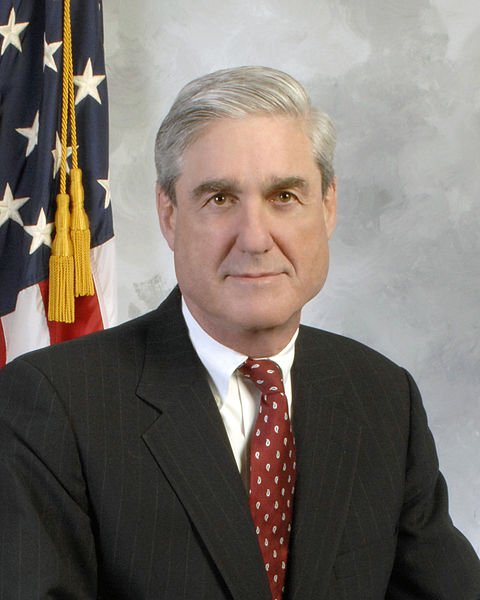Does scope of Robert Mueller's investigation into Russian influence include obstruction of justice?

Former FBI director Robert Mueller. Photo by Federal Bureau of Investigation, via Wikimedia Commons.
Updated: Deputy Attorney General Rod Rosenstein’s grant of authority to newly appointed special counsel Robert Mueller goes beyond an investigation of links between the Russian government and individuals associated with Donald Trump's presidential campaign.
Rosenstein’s order also authorizes Mueller to investigate “any matters that arose or may arise directly from the investigation,” Lawfare reports. And that could include allegations of obstruction of justice, the blog says.
A Politico writer has a similar view. “Mueller’s mandate seems broad enough to capture matters like Trump’s alleged entreaties to (fired FBI Director James) Comey to end the inquiry into former National Security Adviser Michael Flynn,” the article ways. “If Mueller wants more clarity on whether a matter is in his purview he could come back to Rosenstein and ask.”
Mueller, 72, is a former FBI director who served under George W. Bush and Barack Obama, and was the longest-serving head of the FBI since J. Edgar Hoover. He is leaving his position as a partner at WilmerHale to avoid conflicts of interest, Law.com (sub. req.) reports.
Also expected to join Mueller in the investigation are two WilmerHale lawyers. One is Aaron Zebley, Mueller’s former FBI chief of staff. The other is James Quarles III, who once worked as an assistant special prosecutor in the Watergate investigation.
In an initial statement issued by President Trump late Wednesday, he said, “As I have stated many times, a thorough investigation will confirm what we already know—there was no collusion between my campaign and any foreign entity. I look forward to this matter concluding quickly.”
But in tweets early Thursday, Trump claimed he was the victim, the New York Times reports. “With all of the illegal acts that took place in the Clinton campaign & Obama Administration, there was never a special councel (sic) appointed,” Trump wrote. “This is the single greatest witch hunt of a politician in American history!”
Later on Thursday, Trump told The Associated Press that appointing a special prosecutor, “hurts our country terribly.” It “shows we’re a divided, mixed-up, not unified country,” and is “a very, very negative thing,” he also told the AP.
Rosenstein’s order outlines several areas of investigation.
Paragraph (b) says the special counsel is authorized to conduct the investigation confirmed by Comey in congressional testimony on March 20.
According to Lawfare, Comey stated that he was investigating “the Russian government’s efforts to interfere in the 2016 presidential election and that includes investigating the nature of any links between individuals associated with the Trump campaign and the Russian government and whether there was any coordination between the campaign and Russia’s efforts. As with any counterintelligence investigation, this will also include an assessment of whether any crimes were committed.”
Paragraph (b) goes on to say the investigation includes “any links and/or coordination between the Russian government and individuals associated with the campaign of President Donald Trump,” along with “any matters that arose or may arise directly from the investigation.”
Paragraph (b) also says Mueller may investigate any other matters within the scope of 28 C.F.R. § 600.4(a), and may prosecute federal crimes arising from the investigation.
Lawfare sees significance in the reference to Section 600.4(a), a statute that authorizes special counsels to investigate only those things that are “within the scope of his or her jurisdiction.” The reference reinforces outer limits on the special counsel’s authority, Lawfare says. If additional jurisdiction is needed, Mueller will have to consult with the Justice Department.
Limits on a special counsel trouble the authors of a Los Angeles Times op-ed, Hofstra University law professor Eric Freedman and Erwin Chemerinsky, who is leaving his post as law dean at the University of California at Irvine to become dean at Berkeley Law.
They contend Congress should renew the independent counsel statute to allow for the appointment of a special prosecutor who cannot be fired. “Without the protection of the independent counsel law,” they write, “Trump can order Rosenstein to fire Mueller, and fire Rosenstein if he refuses.”
Lawfare points out that the final report of a special counsel is confidential. The blog notes congressional investigations and calls for an “additional appropriately resourced and more independent investigation” by Congress, perhaps by a select committee.
Updated at 3:45 p.m. Thursday with fresh comments from Trump.



